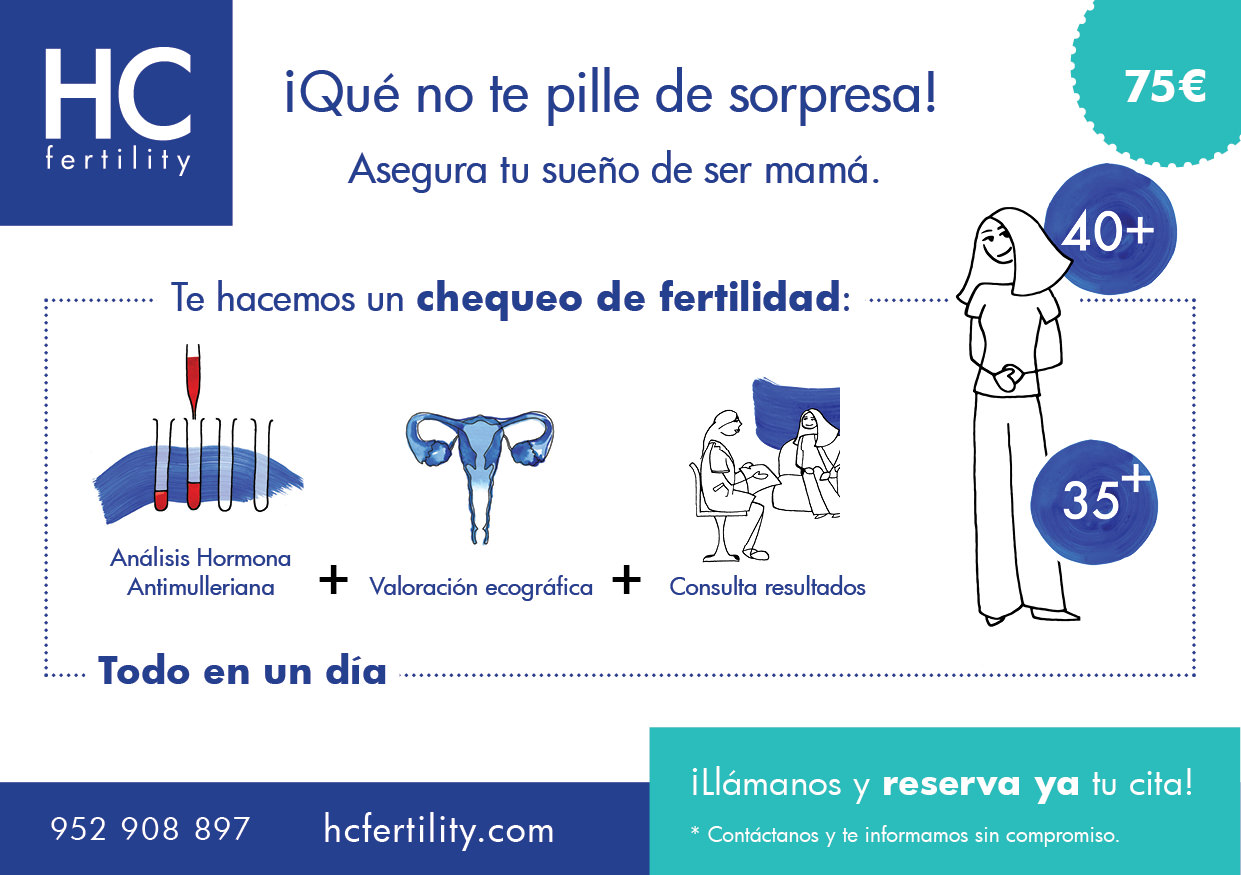20 July, 2020
Being overweight worsens the prognosis for getting pregnant

Obesity is an imbalance in the balance between food intake and the use that our body gives them, to obtain the energy we need for proper functioning.
When there is an excess of entries with little expenditure (sedentary lifestyle), we accumulate it in the organ designed for that purpose, fat, causing overweight.
We all know overweight couples who have children without problems, but those who have difficulty getting pregnant may find yet another stumbling block on their way to motherhood from excessive body weight.

Being overweight puts a woman and her baby at high risk during pregnancy, and also poses a problem for the future of their health.
In classical Greece, Hippocrates was of the opinion that “people with an obese constitution are not usually prolific.”
The impact of being overweight affects both to achieve a spontaneous embrace and if help from assisted reproduction is needed.
In the studies carried out, measuring the body mass index (BMI (weight (kilos) / Height2 (meters)), an important marker of overweight, shows a lower pregnancy rate if it is> 29 k / m2.
Fat tissue is the largest endocrine organ in the body, intervening in metabolism in general, in the production and balance of steroid hormones (including sexual hormones), in the immune system, in the production of blood cells and in reproductive function.
Fat tissue produces a protein, leptin, which in addition to regulating appetite in the central nervous system, is involved in reproductive function. In overweight women, this protein increases and distorts the development of the ovarian follicles, the hormonal levels, male and female, causing negative changes for the maturation of the ovules and for implantation.

Leptin causes negative changes for egg maturation and implantation
Another protein, adiponectin, beneficial for the reproductive process, decreases in obese women, causing worsening of insulin sensitivity (resistance), very negative for the development of ovarian follicles.
Effects of obesity in an assisted reproduction process.
Obesity can alter oocyte quality and maturation. In IVF in vitro fertilization cycles, less mature follicles are obtained, medications arrive worse within the follicle, and the fertilization rates of the ovules are 10 to 45% lower, obtaining fewer embryos and of poorer quality.
The increase in early abortions is also attributed to the reduction in oocyte quality that conditions worse embryonic development and abnormal trophoblastic invasion.
Effects on ovulation.
The influence of being overweight on ovulation increases as the BMI increases, the relative risk (RR) of subfertility with a BMI between 21 and 24 is 1 (it does not influence) and 2.7 when the BMI is in the obesity range.
Most of the time this effect is evident in women with hyperandrogenic anovulavion, commonly known as polycystic ovarian syndrome (PCOS).
At least 50% of women with PCOS and increased BMI have menstrual disorders, and 60-70% of women with PCOS have insulin resistance, which increases male hormones. Added to this is the decrease in the proteins that transport the sex hormones, which cause their greatest expression.
Weight loss in women with PCOS improves hormones, menstrual regularity, ovulation rate and the possibility of gestating, so that reductions that may seem insignificant, between 5 and 10%, achieve significant improvements .
For all these reasons, weight loss is the first measure that this type of patient should take
All these arguments should convince our patients that the path to motherhood requires their contribution so that the efforts of the reproductive professionals find fertile ground to achieve the desired end.
If this is your case, we recommend consulting with a fertility expert gynecologist to see the options and possibilities for your particular case.


Back to blog
In other news

7 July, 2020
The low ovarian response
A few days ago, we were talking about the ¨Low Reserve¨ (few eggs); Today we will talk about ¨Low...
[Continue reading ]28 October, 2021
You are one step away from fulfilling your dream
We understand that choosing a Fertility Clinic to fulfill your baby dream is a very important decisi...
[Continue reading ]


